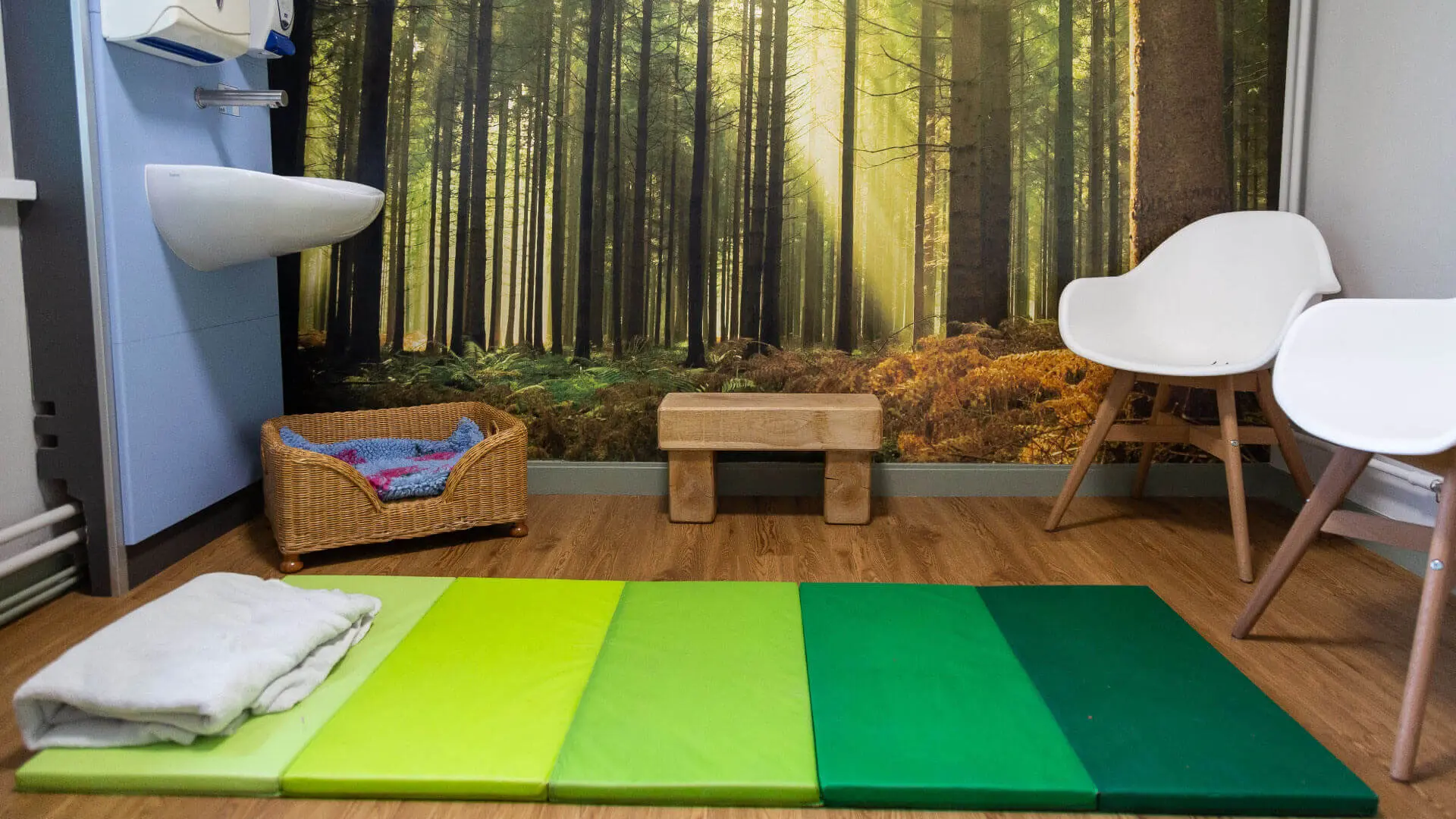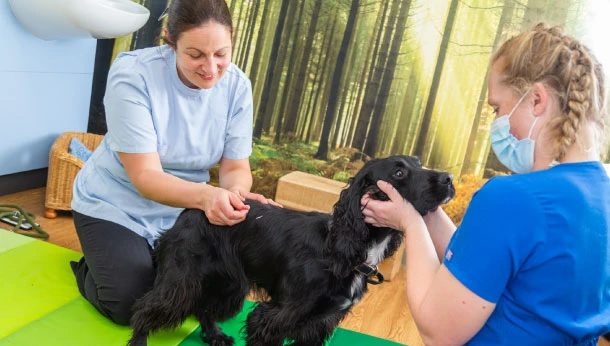Acupuncture

Acupuncture for your pet
As part of our holistic approach to your pets’ health, Blue House offer Western Acupuncture alongside conventional medicine to treat your pets’ painful conditions in our relaxing Woodland Room. At Blue House we have a dedicated "Woodland Room" for the administration of acupuncture treatments. This is a quiet, tranquil forest themed space to encourage our patients to settle during their treatments. We tend to sit on the floor to allow them to relax (chairs are provided!).
What is acupuncture?
Acupuncture is the practise of inserting fine, solid needles into the body for pain relief or, in some cases, to help the body deal with other diseases. At Blue House we use Western Veterinary Acupuncture techniques rather than Traditional Chinese Medicine. Acupuncture is best used in conjunction with conventional medicines and can reduce the need for medications in some cases.
How does acupuncture work?
It works through the nervous system. The needles block the pain messages and encourage the brain and central nervous system to produce more of the body’s natural painkillers. In conditions that are not painful, acupuncture may help to reset the body’s normal functioning by stimulating the body’s repair mechanisms in the nervous system, immune system, and hormonal and cellular systems.
Will it hurt my pet?
Acupuncture needles stimulate nerves that do not cause the unpleasant feelings of pain that we are trying to treat. They stimulate other nerves that send a more important message to the brain, which is how they block pain.
Sometimes animals may react to this sensation as though they are expecting pain, but then relax because it does not occur. Most of the time they accept the fine needles very well and often become relaxed and sleepy during the treatment. Often they appear to look forward to the next treatment when they come back to the practice.

What kind of conditions are treated with acupuncture?
Pain is the most common indication for acupuncture. Usually this means pain associated with arthritis, but also muscle strains, pain secondary to spinal disc disease and bony changes of the spine. Other kinds of pain may also respond.
Sometimes we will also use acupuncture as part of sports medicine in areas such as agility and flyball.
Functional conditions such as nerve damage in all species and constipation in cats may also respond in some cases.
What can I expect during treatment?
After examination, needles will be put into various parts of the body and moved or stimulated a few times. There is not a set “dose” of acupuncture as there is for medication, so your vet will judge how much to do based on your pet’s response both at the time and after the treatment. They may become sleepy and relaxed during the treatment.
And after the treatment?
It is not uncommon for pets to go home and sleep very soundly for a long time. This is a good sign and shows that your pet will probably respond well to acupuncture. But do not worry if they are not sleepy – this does not mean that they will not respond. Sometimes your pet may seem a little more euphoric than usual; this is also a good sign, but keep them quiet for the rest of the day or they may overdo things.
Otherwise treat your pet normally after acupuncture. Do not change exercise, diet or medication unless it has been discussed with your vet.